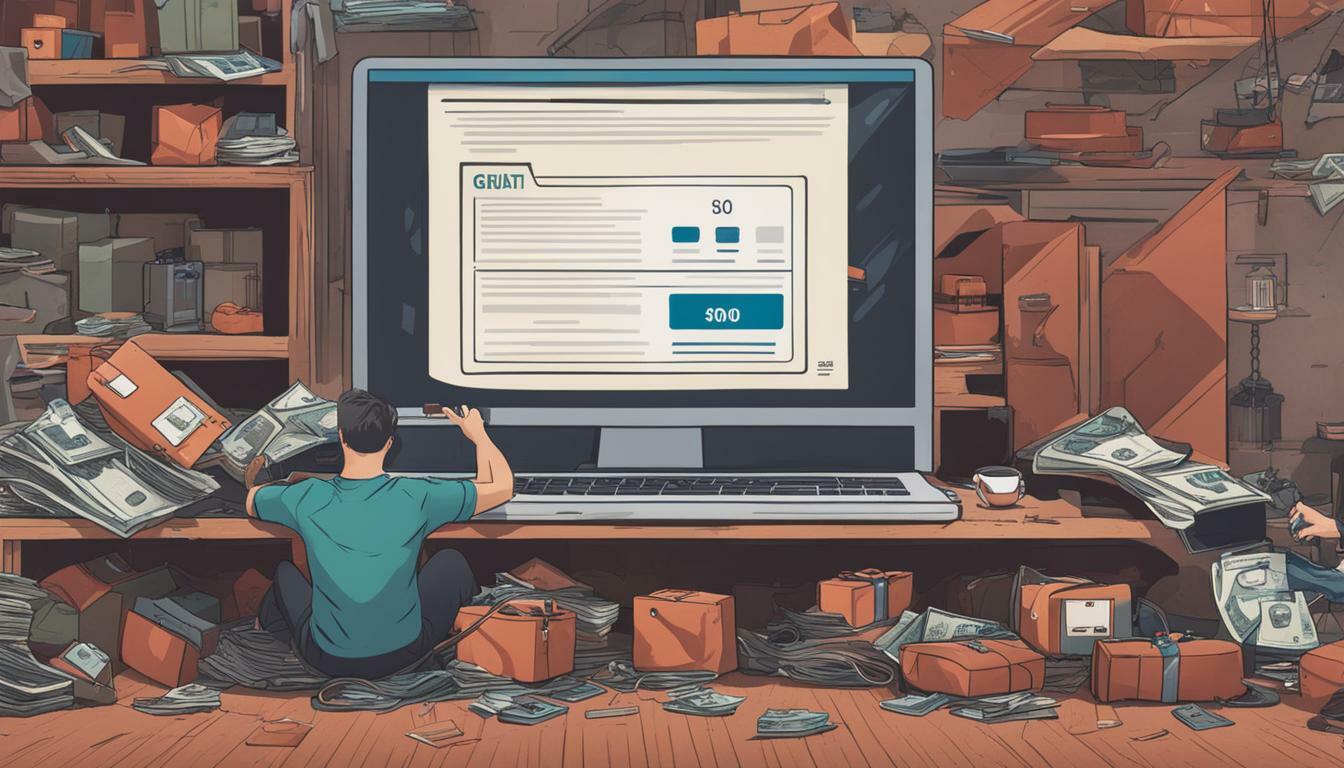Understanding Credit Scores and Societal Pressures: A Guide

Credit scores play a crucial role in shaping financial behavior, and understanding their impact on societal pressures is vital for navigating your financial life effectively. Whether you’re applying for a loan, renting an apartment, or even seeking employment, your credit score is often a determining factor in these decisions. It’s essential to have a clear understanding of credit scores and the social implications they carry.
Credit scores are three-digit numbers that reflect your creditworthiness and likelihood of repaying borrowed money. The most common credit scoring models used are FICO and VantageScore, both ranging from 300 to 850. Your payment history, credit utilization, and credit mix are among the factors that influence your credit score. By maintaining a positive credit history and practicing responsible financial habits, you can improve your credit score over time.
Checking and monitoring your credit scores is essential for staying on top of your financial health. Numerous personal finance websites and mobile banking apps offer free access to credit scores and credit reports. Regularly reviewing this information allows you to identify any potential errors or discrepancies and take appropriate action to rectify them.
Key Takeaways:
- Credit scores have a significant impact on loan approvals, interest rates, and housing options.
- Understanding the factors that influence credit scores, such as payment history and credit utilization, is crucial for improving your creditworthiness.
- Regularly checking and monitoring your credit scores can help you identify and address any errors or discrepancies.
- Freezing your credit is a proactive measure to protect your personal data and prevent unauthorized credit applications.
- By maintaining a positive credit history and practicing responsible financial habits, you can navigate societal pressures related to credit scores.
How Credit Scores Influence Financial Decisions
Your credit score holds significant sway over your financial decisions, impacting loan approvals, interest rates, and even the housing options available to you. Understanding the influence of credit scores is essential in navigating the financial landscape.
When it comes to loan approvals, lenders often rely on credit scores to assess an individual’s creditworthiness. A higher credit score indicates a lower risk of default, which increases the chances of loan approval. On the other hand, a lower credit score may result in loan denials or higher interest rates to compensate for the perceived risk.
🚨 TUIC Errors + Low Credit Score?
CreditScoreIQ helps you build credit faster by reporting utility bills to all 3 bureaus—while you dispute errors.
Start Building Credit Today →Interest rates also heavily depend on credit scores. A good credit score demonstrates responsible financial behavior, leading to more favorable interest rates on loans, credit cards, and mortgages. Conversely, a poor credit score may lead to higher interest rates, increasing the cost of borrowing and potentially limiting your affordability.
| Credit Score Range | Interest Rate (Example) |
|---|---|
| Excellent (760-850) | 2.5% |
| Good (700-759) | 3.5% |
| Fair (640-699) | 5.0% |
| Poor (580-639) | 7.0% |
| Very Poor (300-579) | 10.0% |
Furthermore, credit scores can impact your housing options. Landlords often run credit checks as part of the rental application process to assess the likelihood of on-time rent payments. A poor credit score may make it more challenging to secure a rental property or require a higher security deposit.
Therefore, maintaining a good credit score is crucial for favorable financial decisions and opportunities. By paying bills on time, keeping credit card balances low, and managing credit responsibly, you can improve your creditworthiness and open doors to better loan terms, lower interest rates, and a wider range of housing options.

Note: The table above provides an example of how interest rates may vary based on credit score ranges. Actual interest rates will depend on various factors and may differ among lenders.
Societal Pressures and Financial Reputation
Society places great importance on credit scores, and meeting societal expectations regarding creditworthiness can significantly impact your financial reputation. Your credit score is often seen as a reflection of your ability to manage your finances responsibly, and a good credit score is often equated with success and financial stability.
However, the pressure to maintain a high credit score can lead to stress and anxiety. The fear of falling short of societal expectations can make individuals feel compelled to make financial decisions that may not align with their actual needs or goals. This can result in unnecessary debt or taking on financial burdens that are difficult to manage.
It’s important to remember that everyone’s financial situation is unique, and societal expectations should not dictate your financial choices. Your credit score is just one aspect of your financial health, and focusing solely on this number can lead to neglecting other important areas, such as saving for the future or investing in your own personal growth.
To navigate societal pressures related to credit scores, it’s essential to prioritize your individual financial goals and values. Take the time to assess your own needs and make financial decisions based on your own circumstances, rather than succumbing to external pressure. Remember that it’s okay to prioritize your financial well-being over meeting societal expectations. Your financial reputation should be built on your own terms, not on fulfilling the expectations of others.
Quote: “Don’t let societal pressure dictate your financial choices. Stay true to your own financial goals and priorities.” – Financial Advisor
Table: Impact of Societal Expectations on Financial Reputation
| Societal Expectations | Impact on Financial Reputation |
|---|---|
| High credit score | Perceived as financially responsible and successful |
| Low credit score | Perceived as financially irresponsible and less trustworthy |
| Meeting societal expectations | May lead to financial decisions that are not aligned with personal goals |
| Prioritizing individual financial goals | Builds a financial reputation based on personal values and priorities |
By understanding the impact of societal pressure on credit scores and financial reputation, you can make informed decisions based on your own financial goals and priorities. Remember, your worth as an individual goes beyond a three-digit number. Focus on building a solid financial foundation that supports your own happiness and long-term financial well-being.

Peer pressure can have a profound impact on credit scores, but it’s important to navigate these influences and make choices that align with your financial goals. Your friends and social circles may have different financial priorities and spending habits, which can lead to pressure to overspend or make impulsive financial decisions. However, succumbing to peer pressure can negatively affect your credit score and long-term financial well-being.
To avoid falling into this trap, it’s crucial to establish a strong foundation for your financial decisions. Start by setting clear goals and priorities for yourself, focusing on what matters most to your own financial future. Establishing a budget and sticking to it can help you resist the temptation to overspend or take on unnecessary debt.
Additionally, surrounding yourself with like-minded individuals who prioritize financial responsibility can provide a supportive environment. Seek out friends who understand the importance of maintaining a good credit score and are committed to making informed financial choices. Having a support system can help you stay on track and resist peer pressure.
Strategies for Navigating Peer Pressure
- 1. Educate yourself: Take the time to understand how credit scores work and the impact they have on your financial life. By arming yourself with knowledge, you can make informed decisions that align with your long-term goals.
- 2. Communicate openly: Discuss your financial goals with your friends and loved ones. Let them know that you prioritize financial responsibility and are committed to making choices that align with your objectives. Open communication can help alleviate peer pressure and create a supportive network.
- 3. Practice self-discipline: Stay focused on your own financial goals and resist the urge to compare yourself to others. Remember that everyone’s financial journey is unique, and what works for someone else may not be suitable for you.
- 4. Seek professional guidance: If you’re feeling overwhelmed or unsure about your financial decisions, consider consulting with a financial advisor. They can provide objective insights and help you navigate peer pressure effectively.
“Surround yourself with only people who are going to lift you higher.” – Oprah Winfrey

| Peer Pressure Impact | Strategies to Navigate |
|---|---|
| Can lead to impulsive spending and debt accumulation | Educate yourself and communicate openly about your financial goals |
| May encourage overspending and poor financial choices | Practice self-discipline and surround yourself with supportive individuals |
| Can create stress and anxiety about financial reputation | Seek professional guidance and remember that your financial journey is unique |
Handling Credit Score Stress
Dealing with credit score stress is crucial for maintaining a healthy financial mindset and making informed decisions for your long-term financial well-being. Your credit score can often feel like a weight on your shoulders, impacting your ability to secure loans, get favorable interest rates, or even rent a home. However, it’s important to remember that your credit score is not a reflection of your worth as a person, but rather a measure of your financial responsibility.
One effective way to manage credit score stress is to educate yourself about credit scores and how they are calculated. Understanding the factors that influence your credit score, such as payment history and credit utilization, can help you make proactive choices to improve it. Implementing smart financial habits, such as paying bills on time and keeping credit card balances low, can contribute to a healthier credit score over time.
Additionally, it’s crucial to maintain a long-term perspective when it comes to credit scores. Fluctuations in your credit score are normal, and obsessing over every small change can only add to your stress. Instead, focus on the actions you can take to improve your credit score, like regularly checking your credit report for errors and addressing them promptly.
| Tips for Managing Credit Score Stress |
|---|
| 1. Educate yourself about credit scores and how they work. |
| 2. Implement smart financial habits, such as paying bills on time and keeping credit card balances low. |
| 3. Maintain a long-term perspective and avoid obsessing over short-term fluctuations. |
| 4. Regularly check your credit report for errors and address them promptly. |
Remember, your credit score is just one piece of the puzzle when it comes to your overall financial well-being. By managing credit score stress and focusing on long-term financial goals, you can navigate the ups and downs of credit scores with confidence.

Understanding the impact of credit scores and societal pressures is essential for making informed financial decisions and building a strong financial future. Credit scores play a crucial role in various aspects of our lives, such as loan approvals, interest rates, and housing options. By comprehending how credit scores work and the credit score ranges, individuals can take proactive steps to improve their financial standing.
A credit score is a three-digit number that estimates an individual’s likelihood of repaying borrowed money and bills. The most commonly used credit scoring models are FICO and VantageScore, which both utilize a scale ranging from 300 to 850. Factors that influence credit scores include payment history and credit utilization.
To improve credit scores, it is essential to pay bills on time, keep credit card balances low, and maintain a mix of credit cards and installment loans. Monitoring credit scores can be done for free through personal finance websites and banking apps, enabling individuals to stay updated on their financial health. Additionally, freezing credit is an effective measure for protecting personal data and preventing unauthorized credit applications.
By understanding credit scores and the societal pressures that revolve around them, individuals can navigate their financial lives more effectively. It is important to prioritize long-term financial well-being over short-term fluctuations in credit scores. By using this knowledge to make informed financial decisions and managing peer pressure, individuals can work towards their individual financial goals and maintain a positive credit score.
FAQ
Q: What is a credit score?
A: A credit score is a three-digit number that estimates an individual’s likelihood of repaying borrowed money and bills.
Q: What are the main credit scoring models?
A: The two main credit scoring models are FICO and VantageScore.
Q: What is the credit score range?
A: The credit score range is from 300 to 850.
Q: What factors affect credit scores?
A: Factors that affect credit scores include payment history and credit utilization.
Q: How can I improve my credit score?
A: You can improve your credit score by paying bills on time, keeping credit card balances low, and having a mix of credit cards and installment loans.
Q: How can I check and monitor my credit score?
A: You can check and monitor your credit score for free through personal finance websites and banking apps.
Q: How can I protect my personal data and prevent unauthorized credit applications?
A: Freezing your credit is an effective way to protect personal data and prevent unauthorized credit applications.
Ready to Improve Your Credit?
Disputing TUIC errors is step one. Step two? Boost your score by reporting utility payments with CreditScoreIQ.
Get Started Now (Only $1 Trial) →3-bureau reporting • $1M identity insurance • Dark web monitoring






